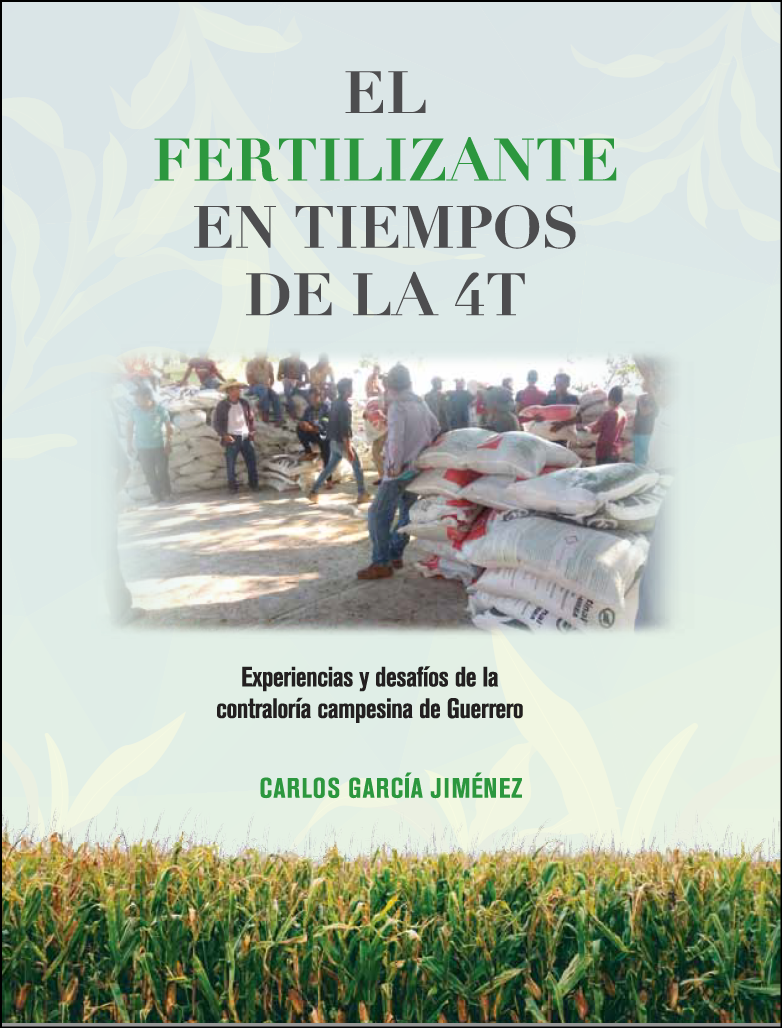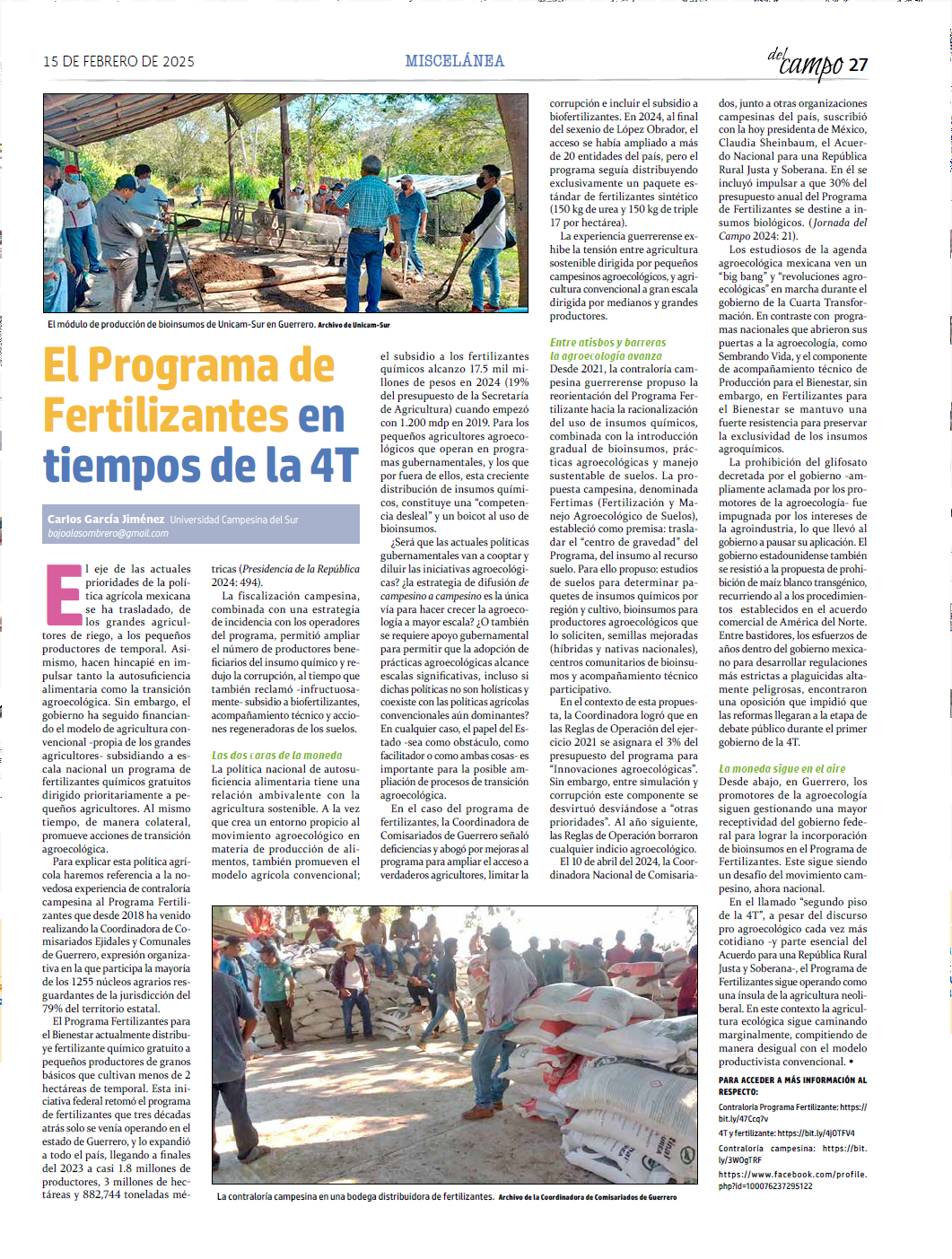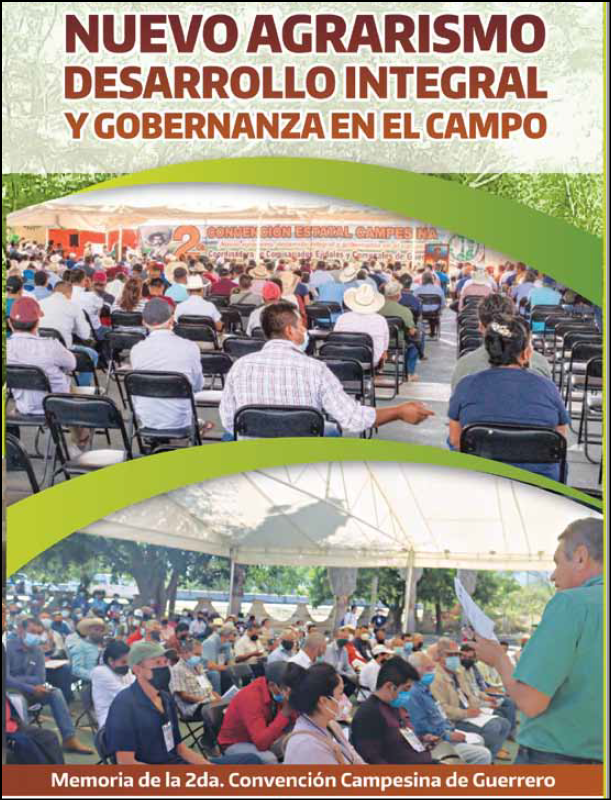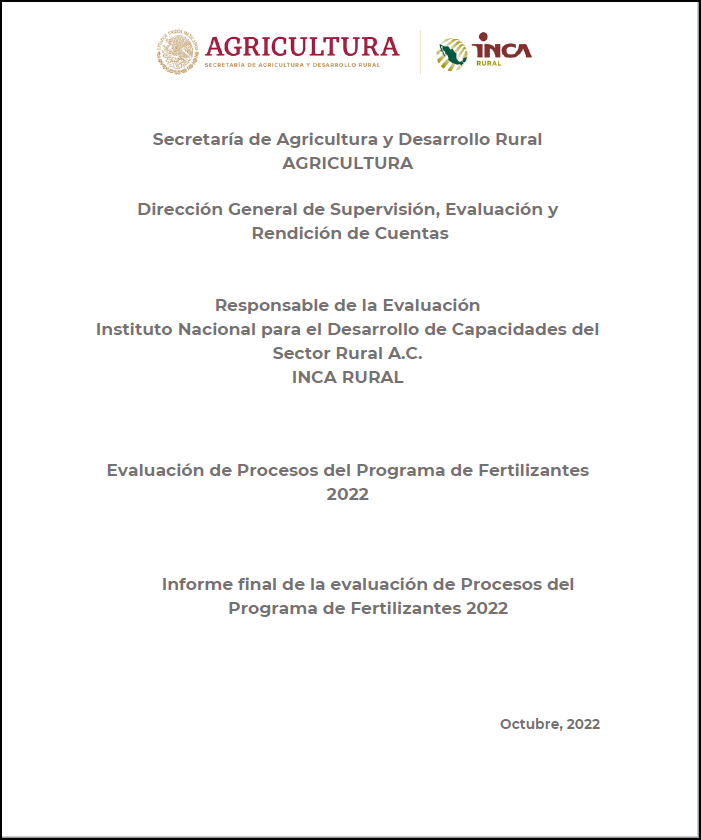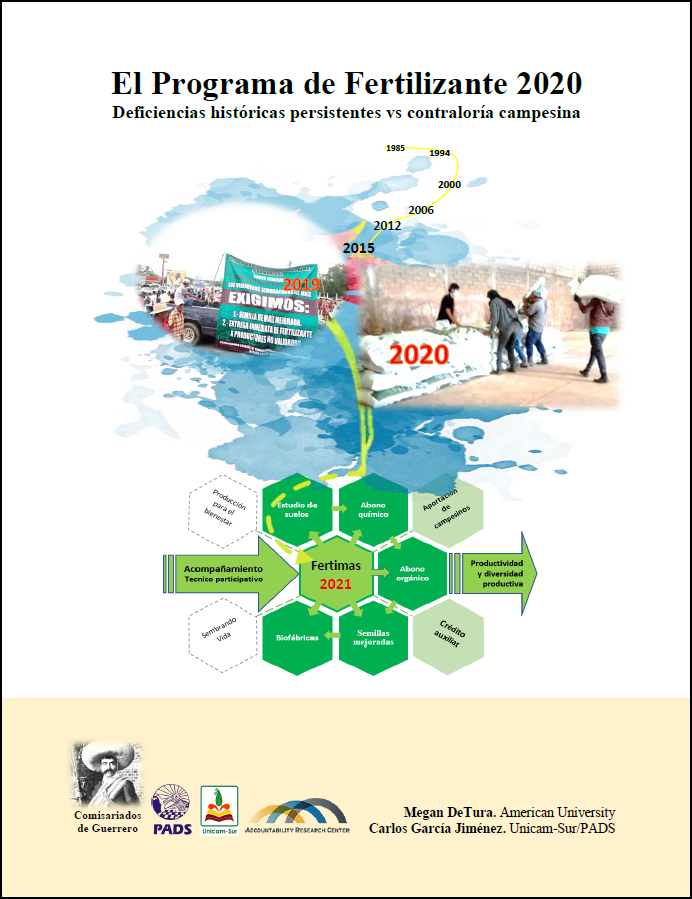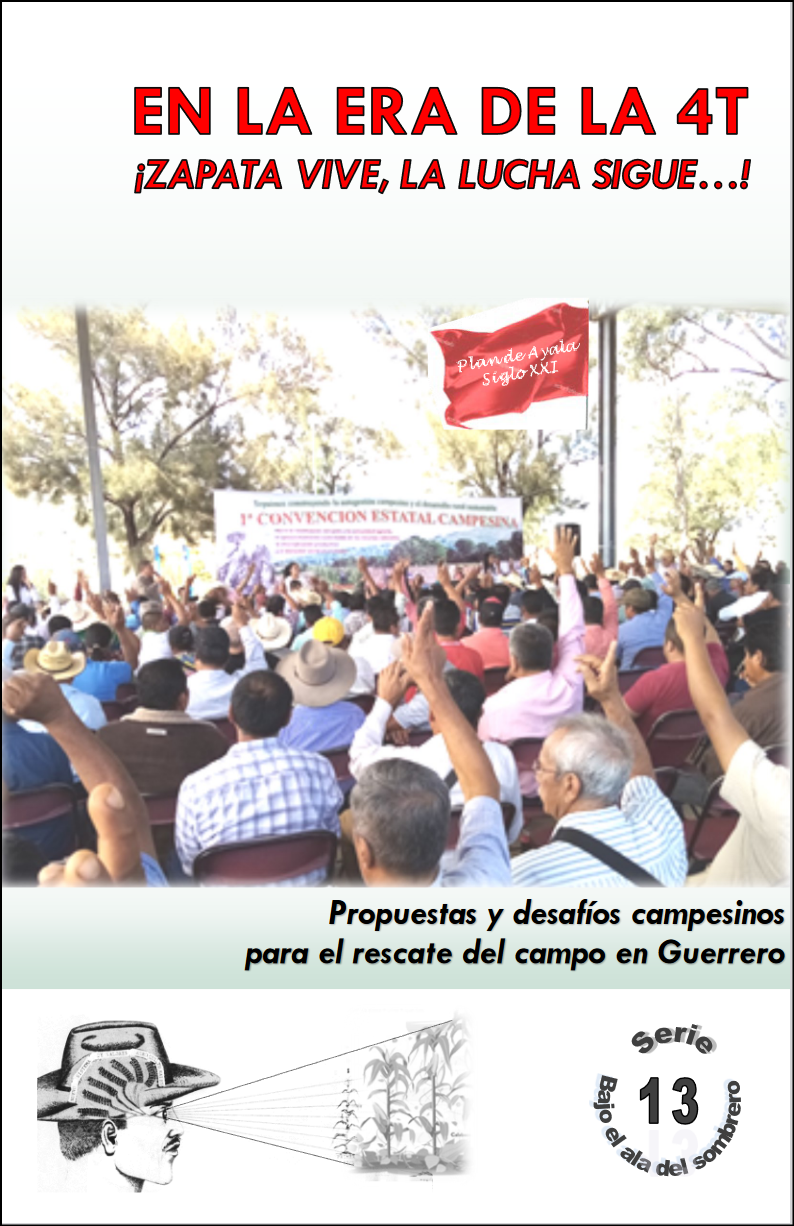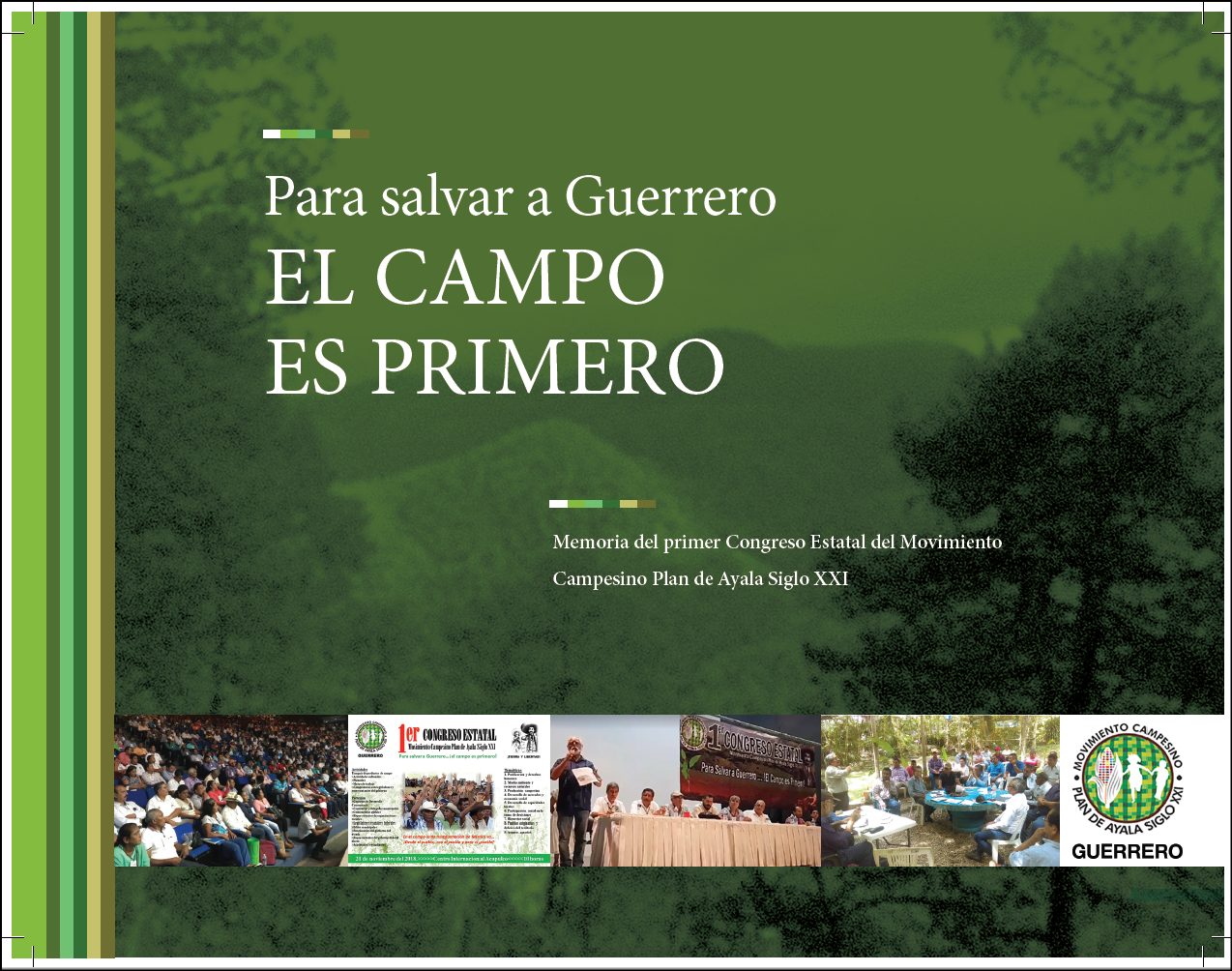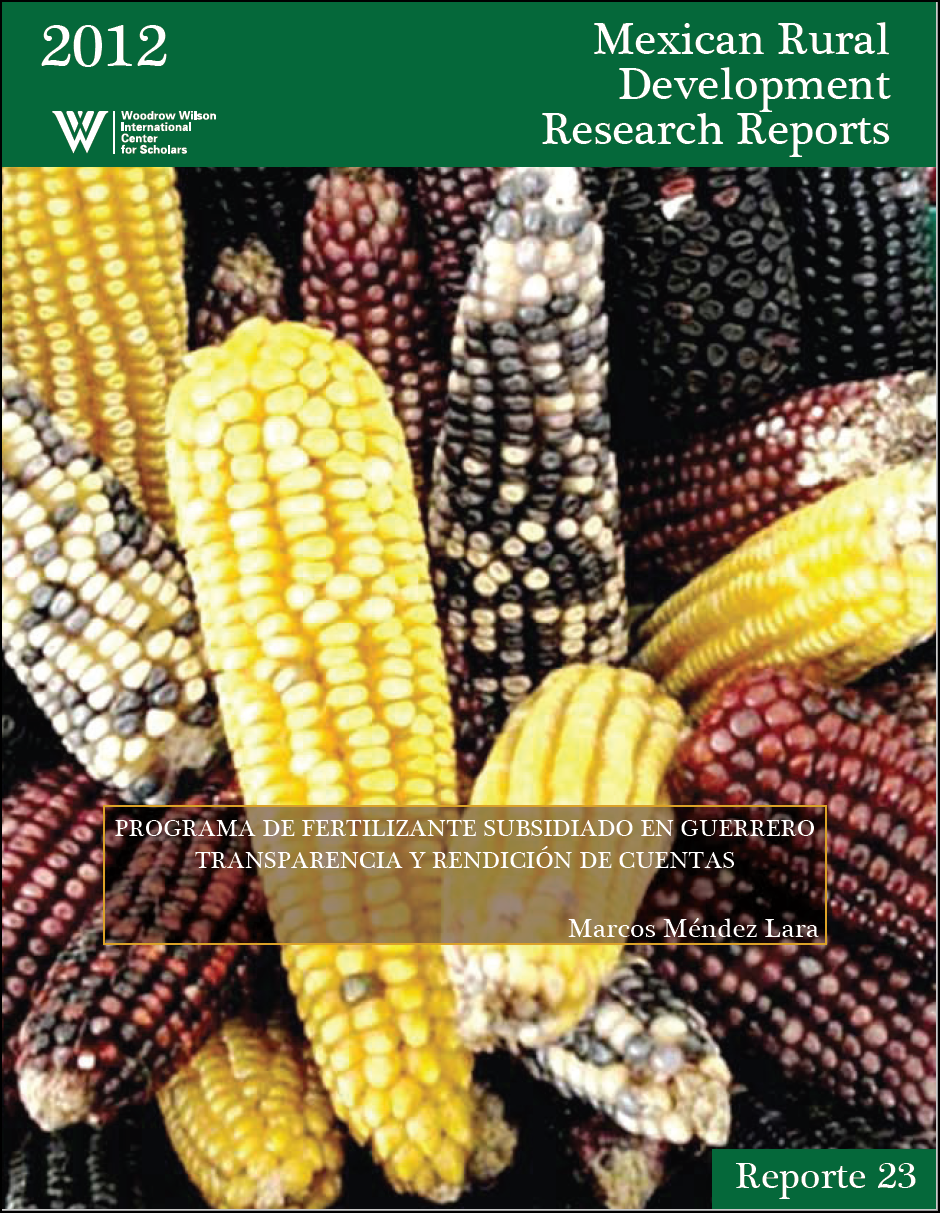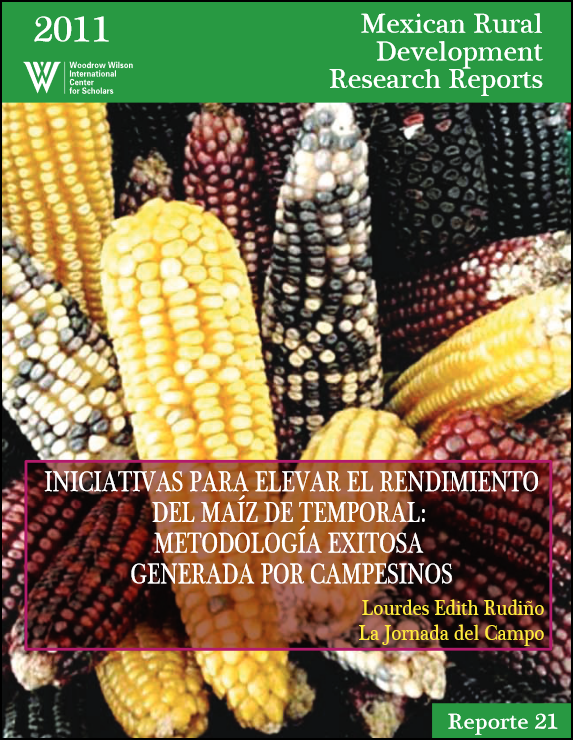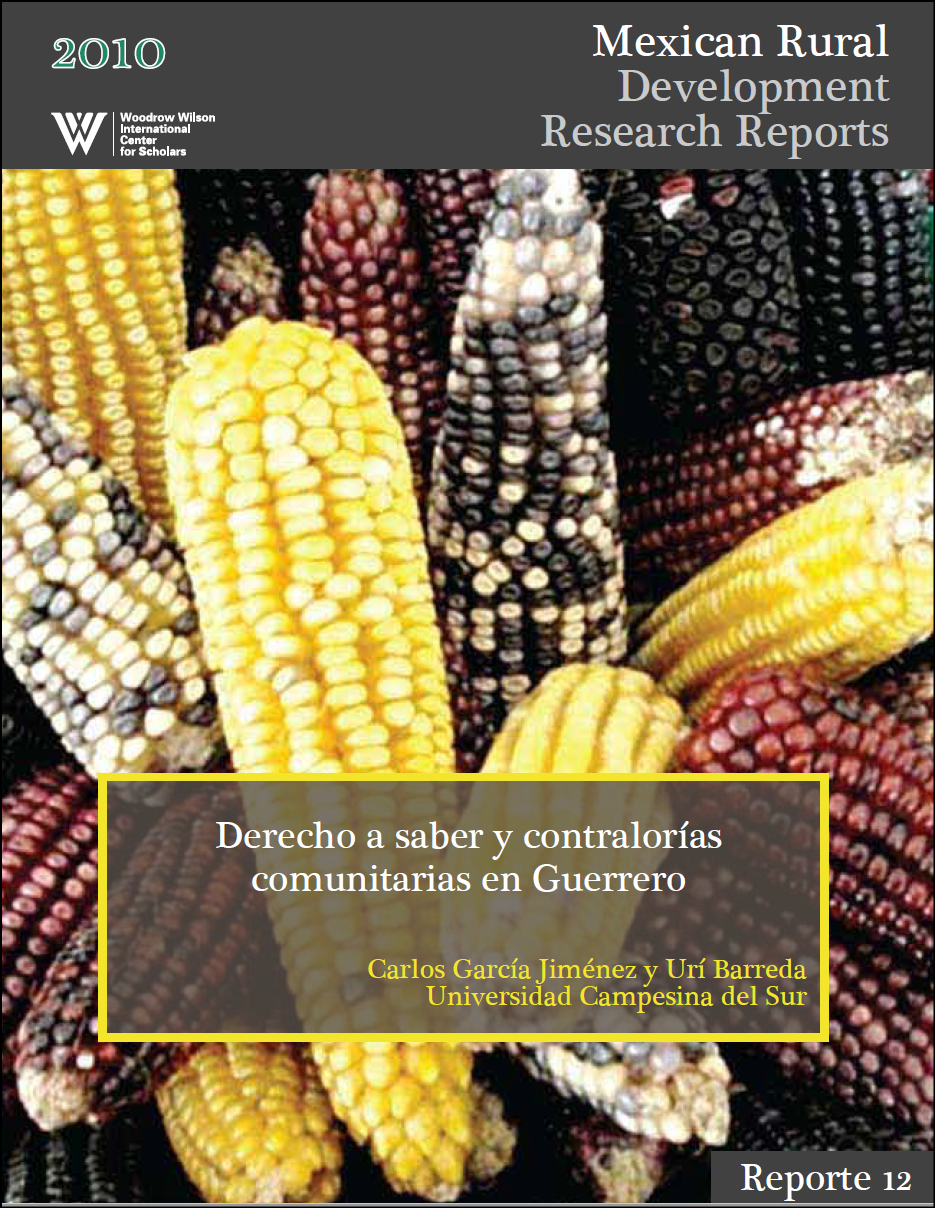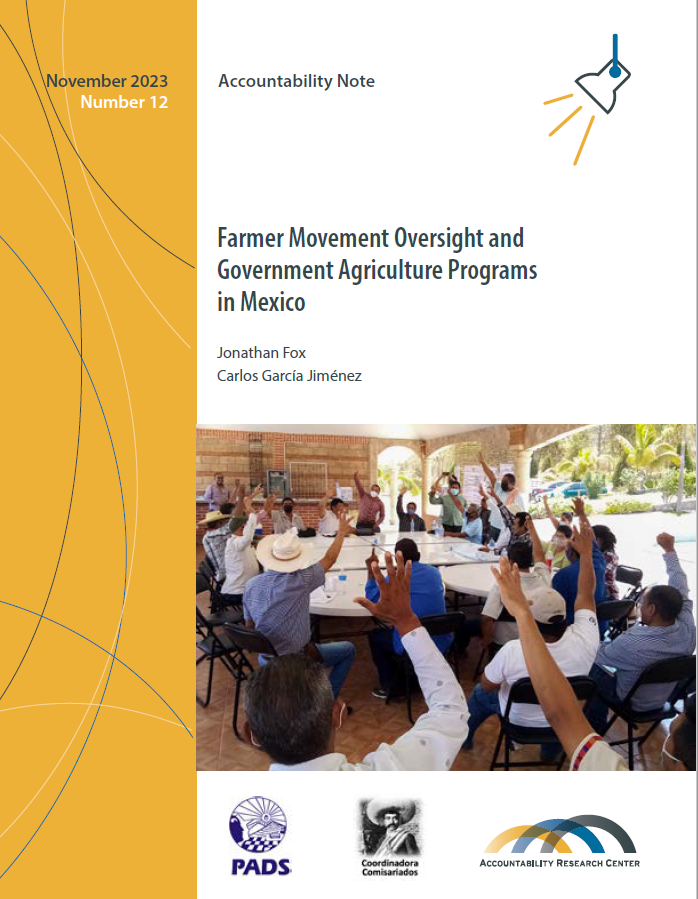
Farmer Movement Oversight of Mexican Government Agricultural Programs
Date: November 2023
Author(s): Jonathan Fox and Carlos García Jiménez
Publication type: ARC Accountability Note
Published by: Accountability Research Center
In Mexico’s state of Guerrero, a broad-based, collaborative social accountability campaign led by a network of agrarian community leaders contributed to improving a large-scale free fertilizer program, targeted at smallholders.
In 2019, the newly-elected federal government took over a state government subsidy program that had been synonymous with clientelism and corruption, promising to clean it up and include access to organic fertilizer. When the program’s historic deficiencies persisted during its first year of transition to federal management, farmers responded with widespread, confrontational protest.
To address this chaotic situation, veteran activists and community leaders from across the state transformed protest into proposals, launching a participatory, statewide monitoring and advocacy campaign with the Guerrero Network of Ejido and Communal Commissioners.
The campaign advocated for the validation of program beneficiary rosters in community assemblies, based on federal agrarian law, also using the official public information request system. It helped to ensure the distribution of fertilizer to smallholder farmers, reduced diversion of fertilizer for corrupt or electoral purposes, and promoted more inclusion of women and indigenous smallholders.
Despite these achievements, the Network’s proposals for transparency, peasant participation, accountability, and agroecological transition were rejected by the government officials responsible for the fertilizer program. In response, the campaign coordinators shifted their focus to other government agricultural programs and coordinated with agrarian leaders in other states to launch their own advocacy platforms.
This organizing process led to the second Agrarian Convention of Guerrero, which included participation of agrarian leaders from a dozen other states, followed by regional meetings and state conventions in half of the country’s states. On April 10, 2023, five thousand agrarian leaders gathered in Mexico City for the First National Agrarista Convention.
Reflections on this experience include:
- The focus of the farmer oversight campaign on immediately felt needs generated social energy and inspired a new organizing strategy.
- The state-wide mobilization to promote better fertilizer delivery was grounded in revitalized civic life in historic local participatory governance institutions that were created following the Mexican Revolution. Elected leaders of these ejidos and agrarian communities gave the campaign both scale and legitimacy.
- Though mainly driven by grassroots organizing, the farmer oversight campaign also used technical open government tools.
- The campaign combined the monitoring of agricultural programs and local problem-solving with social mobilization, scaling up advocacy for greater recognition of peasant movement oversight to the national level.
Also available in Spanish.
Jonathan Fox is director of the Accountability Research Center (ARC) and a professor at the School of International Service (SIS) at American University in Washington, D.C. He collaborates with a wide range of social and civil society organizations in Mexico and other countries. His books in Spanish, as author or editor, include Subsidios para la Desigualdad: Las políticas públicas del maíz en México a partir del libre comercio (2010), Derecho a saber: Balance and perspectivas civiles (2007), Derecho a exigir respuestas: Reclamos de la sociedad civil ante el Panel de Inspección del Banco Mundial (2005), and Indígenas mexicanos migrantes en los Estados Unidos (2004). He has also published in the Mexican journals Rendición de Cuentas, Gestión y Política Pública, Migración y Desarrollo, Perfiles Latinoamericanos, Foro Internacional, Política y Gobierno, Investigación Económica, and Revista Mexicana de Sociología, as well as La Jornada del Campo. His recent articles in English have appeared in World Development, IDS Bulletin, Development Policy Review, and Development in Practice.
Carlos García Jiménez is a native of Ocotillo ejido in the municipality of Coyuca de Benítez, Guerrero, Mexico. He is an agronomist with a specialization in rural sociology from the Universidad Autónoma Chapingo. Since 1987 he has been a promoter of community, regional, state, and national social organizations on issues of agrarian rights, agroecology, alternative marketing of rural products, alternative rural education, municipalism, and public policy advocacy. He is currently director of Promotores de la Autogestión para el Desarrollo Social, member of the board of directors of the Universidad Campesina del Sur, advisor to the Coordinadora de Comisariados Ejidales y Comunales de Guerrero and the Unión de Pueblos de Coyuca de Benítez y Acapulco, president of the Fundación Produce de Guerrero, associate of the Foro Permanente de Organizaciones Sociales de Guerrero, promoter of the collective Guerrero es Primero, and a convenor of the Red de Promotores del Movimiento Social de Transición Agroecológica en Guerrero. He is also author and co-author of books, pamphlets, newspapers, and bulletins.

